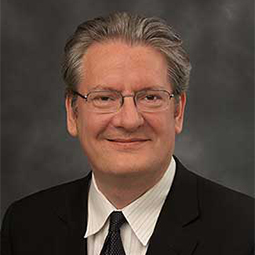Cognitive, Large - And Small - Scale
is a cognitive neuroscience battery for assessing disruptions in core cognitive processes across multiple rural drug-abuse sub-populations
Led by Dr. Matthew Johnson University of Nebraska-Lincoln
Study Overview:
This project aims to develop improved neurocognitive assessments that can have long-term predictive validity in the absence of frequent monitoring to treat drug users.
Study Specific Aims:
(Aim 1): Determine the extent to which rural drug users manifest subtle impairments in core neurocognitive functions. We will use a novel, multimodal cognitive and neuroimaging battery that probes attention, short-term memory, and long-term memory at multiple spatial, temporal, and cognitive-complexity scales.
(Aim 2): Determine the extent to which impairments in core neurocognitive functions predict individual differences in quality-of-life measures across rural drug users. Data collected in our neurocognitive battery and via LNC will include measures of drug users’ economic, social, and physical well-being.
(Aim 3): Construct multivariate longitudinal models based on features from the neurocognitive battery to predict long-term outcomes for rural drug users.
Unique Sample Population:
N=150 (N=105 mild to moderate users from the Rural Health Cohort Study and N=45 non-drug using cohort-adjacent case-matched controls).
Long-Term Goals:
To predict outcomes for these users and, in subsequent projects, to apply these techniques to the development of new interventions and the study of other conditions. By identifying potentially subtle neurocognitive features associated with drug abuse that may be missed by traditional assessments, and by applying sophisticated multivariate analyses to assess their aggregate impact, we can construct more comprehensive neurocognitive profiles of individual users than previous studies have achieved and use them to robustly predict individual differences in life/health outcomes.

Dr. Matthew Johnson Project Director
Dr. Johnson received his Ph.D. in Neuroscience at Yale University. He was also a postdoctoral researcher at Yale and has served on the faculty at the School of Psychology at the University of Nottingham, Malaysia Campus. His research concentrates on interactions between perception and reflection using a variety of techniques and experimental paradigms, including behavioral experiments, functional MRI, and EEG.

Dr. Cary SavageMentor
Dr. Savage joined the UNL psychology faculty as part of the Clinical Program and Neuroscience and Behavior faculty in Spring 2018. He received his Ph.D. in clinical psychology from Oklahoma State University. From 1992-94 Dr. Savage completed a Psychiatric Neuroscience Fellowship at The Massachusetts General Hospital and from 1994-95 he completed a Fellowship in Brain Imaging at The Massachusetts General Hospital.
Dr. Savage's research examines brain health, including the neural processes underlying health behaviors - for example, staying physically active and maintaining optimal body weight and strength – and the reciprocal impact these choices have on long term brain health. The human brain is highly impacted by behavioral choices that affect overall body health yet it is also the agent of health behaviors. Healthy behaviors are in part difficult to maintain because they are less immediately gratifying and the benefits of healthy behaviors emerge over time. He is also interested in brain health broadly, including how brain activity mediates health behaviors (e.g., diet and physical activity), modifiable risk factors for dementia, and cognitive changes and recovery from brain injury (e.g., concussion, stroke).

Dr. James Blair Mentor
James Blair, PhD is the Director of the Center for Neurobehavioral Research. He is an expert in the neurobiology of emotion, aggression and antisocial behavior and has published more than 200 scientific manuscripts on this and related topics. Dr. Blair received a doctoral degree in Psychology from University College London in 1993 under the supervision of Professor John Morton. Following graduation he was awarded a Wellcome Trust Mental Health Research Fellowship that he held at the Medical Research Council Cognitive Development Unit for three years. Subsequently, Dr. Blair moved to the Institute of Cognitive Neuroscience, University College London. There, with Uta Frith, he helped form and co-lead the Developmental Disorders group, and was ultimately appointed Senior Lecturer. Dr. Blair Joined the NIMH Intramural Research Program in 2002.He joined Boys Town as Center Director in August 2016. He is currently President of the Society for the Scientific Study of Psychopathy as well as the acting vice-chair of the Board of Scientific Advisors for the National Courts and Sciences Institute (the Institute educates judges on scientific topics relevant to the courtroom). He is also on the scientific advisory board of the Avielle Foundation. He is currently on the editorial boards of Biological Psychiatry, and Biological Psychiatry: Cognitive Neuroscience and Neuroimaging.